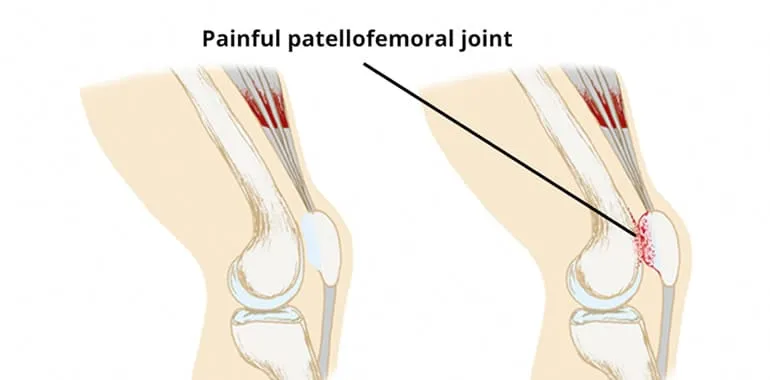One of the most prevalent issues that people face, especially those beginning to introduce exercise into their lives, is knee pain. Patellofemoral Pain Syndrome describes generalized knee pain on or around our kneecaps- whether from the joint or the surrounding muscles. Rather than being a specific diagnosis, patellofemoral pain syndrome (PFPS) is an umbrella term used to describe a variety of conditions of the knee. The trait they all share the most in common is knee pain that can increase with certain activities and debilitate us and prevent us from performing activities at home such as walking, climbing/descending stairs, bending, squatting, and kneeling.
As we all know, working on improving our health by creating routines centered around building an overall healthier lifestyle is the greatest thing we can do to create longevity and improve our quality of life. Whether we begin taking short walks every day, or begin an exercise program on our own or with friends, increasing the amount of activity we perform each day can help us create lasting changes in our lives no matter how old we are.
One of the biggest obstacles we can face when beginning to implement more activity in our lives is pain. Whether it’s from an old nagging injury, or new onset of symptoms, pain can debilitate us and demoralize our efforts. However, if being a physical therapist has taught me anything, it’s that pain does not have to control our lives. Rather, there are many ways that you can take control of that knee pain and be well on your way to success.
What can we do about the knee pain?
As physical therapists, our jobs as movement specialists include making acute observations about how our patient’s entire bodies move. This is very important, as patients with PFPS oftentimes have deficiencies found up and down the kinetic chain in the hips, ankles, and feet. While pain with PFPS is fairly localized to the knee, this doesn’t necessarily mean that there is damage to the knee joint itself that is causing the pain. In fact, even in those patients with previous injuries to the ligaments of the knee, there are many cases where they improve their symptoms without needing any surgical or invasive treatment.
Common contributors to PFPS include but are not limited to:
- IT band syndrome
- Hip stability deficiencies
- Inflammation
- Impaired patellar tracking
- Overuse injuries
- Over pronation of the feet
- Impaired motor control – of the core or other
The connections between our body parts allow us to be capable of great feats of movement, but consequently, deficiencies can result in problems beyond any one joint.
Proper activity modification, rest, and exercise has been shown to have great and lasting effects on people with PFPS. Addressing the cause of the pain rather than masking it will allow you to have longer lasting effects and decrease your risk for getting PFPS in the future.
Ultimately, being able to come in for a true evaluation by a trained physical therapist may be the easiest and most effective way to manage symptoms without being controlled by the pain. Our physical therapists at Universus Physical Therapy are trained to recognize symptoms and determine the root source of PFPS in order to determine the best plan of care to help manage pain and prevent further issues down the line.
Key Points:
- Patellofemoral pain syndrome (PFPS) is an umbrella term used to describe numerous causes of pain in or around the knee joint.
- While the pain may appear to be localized at the knee joint, oftentimes there are deficiencies found up and down the chain at the hip and ankle joints that could be contributing to PFPS.
- While PFPS can be caused by a variety of conditions, there are many common treatments that can be used including but not limited to: therapeutic exercise, manual therapy, motor control training.
- PFPS has a good track record of being treated by conservative treatment, meaning no surgeries or injections!
If you are interested in having a full body- integrative exam to determine the root cause of your knee pain, call 631-533-2888 or fill out an inquiry here: https://universuspt.com/inquire/
You do not need to suffer with knee pain! The fastest route to recovery is finding out what is “really” wrong with a full examination of your movement deficiencies!


